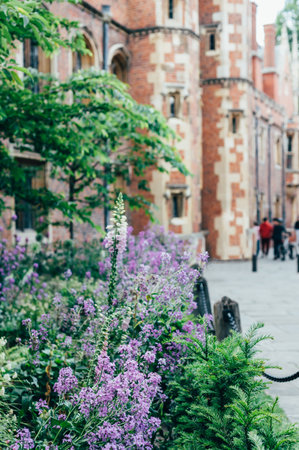1. Understanding Environmental and Health Risks in UK Gardens
Gardening in the UK is a beloved pastime, but it comes with its own set of environmental and health risks that can sometimes be overlooked. British gardens are susceptible to a range of issues that may require more than just a green thumb to address effectively. For example, invasive species such as Japanese knotweed and Himalayan balsam can quickly take over, damaging native flora and even affecting property values. Waterlogging is another frequent concern due to the UKs wet climate, often leading to poor plant growth and increased risk of fungal diseases. Furthermore, certain plants commonly found in British gardens—like foxgloves, giant hogweed, or laburnum—can pose toxicity risks to children and pets if not managed properly. Pest infestations from slugs, vine weevils, or aphids can also escalate beyond simple home remedies. Recognising these challenges early on helps garden owners understand when professional intervention is needed to protect both their gardens and their wellbeing.
2. Recognising Signs It’s Time to Call a Professional
Many UK homeowners take pride in maintaining their gardens, but some situations require expert intervention for safety and long-term wellbeing. Knowing when a risk surpasses the scope of DIY is crucial. Below are key signs, with UK-specific examples, that signal it’s time to consult garden professionals.
Persistent Mould and Fungal Growth
If you notice black spots on walls, fences, or soil that do not respond to regular cleaning, this may be more than a cosmetic issue. In the UK’s damp climate, persistent mould can indicate underlying drainage or ventilation problems. Some moulds produce spores harmful to health, especially for children and those with allergies.
Dangerous Wildlife Encounters
While UK gardens are generally safe, certain wildlife can pose risks:
| Wildlife Issue | Potential Risk | UK Example |
|---|---|---|
| Adders (Britain’s only native venomous snake) | Bites causing pain and allergic reactions | Reported in heathland gardens in southern England |
| Wasps’ Nests | Stings and allergic reactions, especially near homes or play areas | Common in attics, sheds, or under eaves during summer |
| Foxes or Badgers | Property damage, risk to pets, possible disease transmission | Increasingly urban sightings across UK cities and suburbs |
Unexplained Plant Deterioration
If plants or lawns show sudden wilting, unusual discolouration, or stunted growth—despite proper care—this could point to soil contamination (e.g., lead from old paint), pest infestations (such as vine weevils), or complex fungal diseases like honey fungus. These issues often require professional diagnosis and treatment to prevent further spread.
When DIY Isn’t Enough
If your efforts repeatedly fail or you feel unsure about the source of a problem, seeking a qualified garden professional ensures the right action is taken swiftly and safely. Experts have access to specialist tools and knowledge tailored for the UK’s unique environment.
![]()
3. Benefits of Working with Licensed Garden Professionals
When it comes to managing environmental and health risks in your garden, working with licensed professionals in the UK offers significant advantages. These experts are not only trained in horticultural practices, but they also possess a deep understanding of UK-specific legislation and guidelines. This ensures that every job is completed to a high standard, with full compliance to local health and safety requirements.
Trained and Qualified Experts
Licensed garden professionals undergo rigorous training and certification processes. They know how to identify potential hazards such as invasive species, hazardous waste, or diseases affecting plants and soil. Their expertise allows them to use the right techniques for pest control, weed management, and safe disposal of garden debris—helping you avoid common mistakes that could lead to environmental damage or personal injury.
Insured for Your Peace of Mind
Insurance is a critical factor when hiring a garden professional in the UK. Reputable firms provide liability insurance for their employees, protecting you from any accidental damage or injuries that might occur during work on your property. This not only demonstrates their professionalism but also gives you confidence that any unforeseen issues will be handled responsibly.
Commitment to Environmental Responsibility
The best UK garden professionals adopt environmentally conscious practices. They use eco-friendly products, promote biodiversity, and ensure waste is disposed of responsibly according to local council regulations. By choosing experts committed to sustainability, you help protect wildlife habitats and contribute positively to your local ecosystem.
Adherence to UK Health and Safety Standards
Every task is carried out with strict adherence to UK health and safety standards, minimising risks for both workers and residents. From using protective equipment to ensuring proper storage of chemicals, licensed professionals follow protocols designed to keep everyone safe. This level of diligence is especially important when dealing with potentially hazardous situations like chemical treatments or large-scale clearances.
Professional Advice and Ongoing Support
Beyond immediate tasks, qualified gardeners can provide tailored advice on maintaining a healthy outdoor space all year round. They help you understand how to spot early signs of risk and recommend practical steps for long-term care—ensuring your garden remains safe, beautiful, and compliant with UK regulations.
4. Legal Responsibilities and Environmental Protection in the UK
When facing environmental or health hazards in your garden, it’s crucial to understand your legal responsibilities as a homeowner in the UK. The law imposes strict regulations on the disposal of hazardous waste, use of controlled chemicals, and protection of local wildlife. Failure to comply with these laws can lead to significant fines and legal action.
Hazardous Waste Disposal
Many everyday gardening tasks may generate hazardous waste, such as old pesticides, oil, or even contaminated soil. In the UK, householders must follow specific guidelines for disposing of these substances safely. Local councils often provide information on collection points or special arrangements for hazardous materials.
| Type of Hazardous Waste | Legal Requirement |
|---|---|
| Pesticides & Chemicals | Must not be poured down drains; use council-approved disposal sites |
| Asbestos or Contaminated Soil | Professional removal required; cannot be disposed of with regular waste |
Controlled Chemicals in Gardens
Certain chemicals used in gardens are regulated under UK law. The use of herbicides, pesticides, and fertilisers is subject to restrictions to protect human health and the environment. Only approved products may be used, and instructions must be followed precisely. Some substances require certification for purchase and application.
Key Points:
- Always check if a chemical is approved for domestic use by DEFRA or HSE.
- Never exceed recommended dosages or ignore safety warnings.
Wildlife Protection Laws
The UK places strong emphasis on protecting native wildlife, even within private gardens. The Wildlife and Countryside Act 1981 makes it illegal to disturb certain species or destroy their habitats. This includes nests of birds, bat roosts, and habitats for protected amphibians like newts.
| Protected Species | Main Legal Consideration |
|---|---|
| Bats | Illegal to disturb roosts; professional advice required for any work nearby |
| Nesting Birds | No pruning or tree work during nesting season (usually March-August) |
Why Call a Professional?
If you are unsure about handling chemicals, disposing of hazardous waste, or working near protected species, garden professionals are trained to comply with all relevant UK legislation. This ensures your garden remains safe, legal, and environmentally responsible.
5. Sustainable and Safe Solutions for UK Gardens
When it comes to addressing environmental and health risks in British gardens, engaging a professional is often the most responsible choice. UK garden experts are increasingly adopting sustainable and safe practices that protect both people and nature. One key approach is the use of organic pest control methods. Instead of relying on harsh chemicals, professionals may introduce natural predators, use plant-based sprays, or implement companion planting strategies to manage pests in an eco-friendly way. This not only minimises chemical exposure for your family and pets but also preserves essential pollinators like bees and butterflies.
Another hallmark of modern British gardening is wildlife-friendly design. Garden professionals can create habitats that support local species, such as installing bird boxes, hedgehog highways, or native wildflower borders. These thoughtful touches encourage biodiversity, turning your outdoor space into a haven for creatures great and small while maintaining balance in the ecosystem.
Additionally, many UK specialists are well-versed in water conservation techniques. This includes choosing drought-resistant plants suited to the British climate and setting up rainwater harvesting systems to reduce mains water usage. Such measures are not only environmentally sound but also help future-proof gardens against changing weather patterns.
By opting for these sustainable solutions offered by knowledgeable UK garden professionals, you ensure your garden remains beautiful, healthy, and safe for everyone who enjoys it—while playing your part in protecting the wider environment.
6. Finding Trusted Garden Professionals Near You
When facing environmental and health risks in your garden, choosing the right professional is crucial. Here are some practical tips to help you find reputable experts in your area.
Check UK Professional Associations
Start by looking for garden professionals who are members of recognised British organisations. The Royal Horticultural Society (RHS), British Association of Landscape Industries (BALI), and the Arboricultural Association all maintain directories of certified members. These associations ensure their members follow industry standards and best practices, giving you peace of mind when hiring.
Seek Local Recommendations
Word-of-mouth remains one of the most reliable ways to find trusted services. Ask your neighbours, friends, or local community groups about their experiences with garden professionals. Local online forums or neighbourhood social media pages can also be excellent resources for genuine feedback.
Request References and Review Portfolios
A reputable garden professional should be happy to provide references from previous clients and examples of past work. Reviewing these can help you gauge their expertise and suitability for your needs, especially when dealing with complex environmental or health-related tasks.
Compare Quotes and Services
Don’t hesitate to request quotes from several professionals before making your decision. Ensure you understand what’s included in each service and compare both price and approach. This step ensures transparency and helps you make an informed choice that balances quality with value.
By following these steps, you’ll be well-equipped to find a trusted garden professional who can address environmental and health risks safely and effectively, while also adhering to UK standards.


